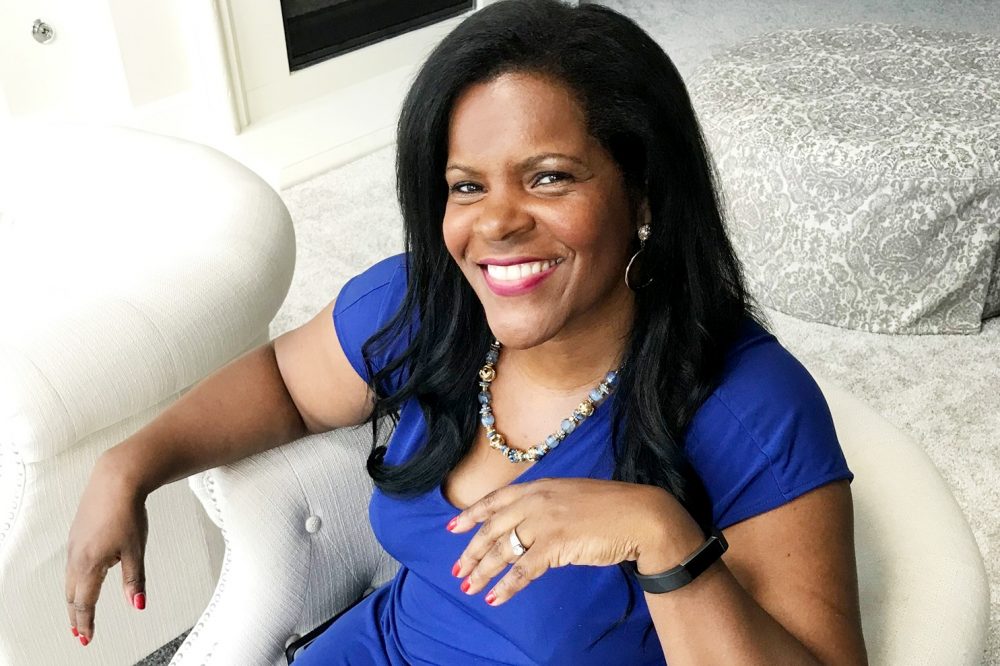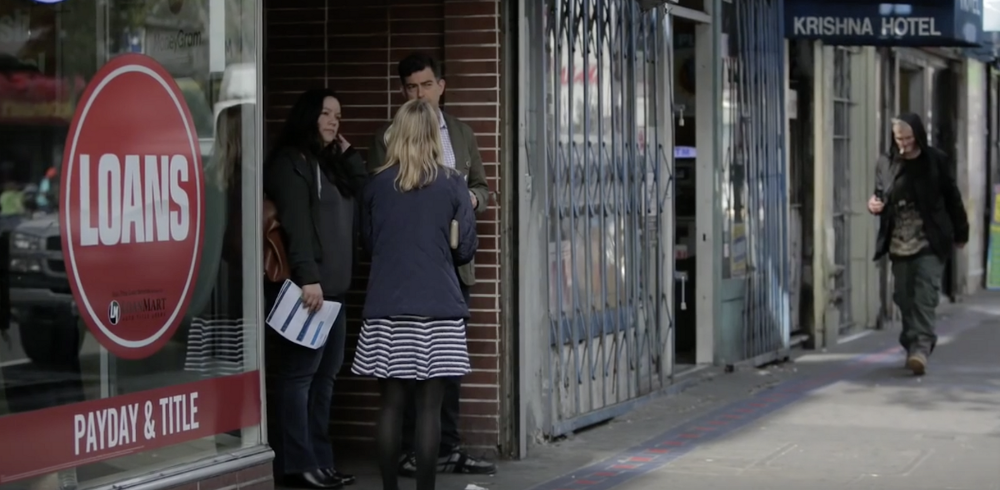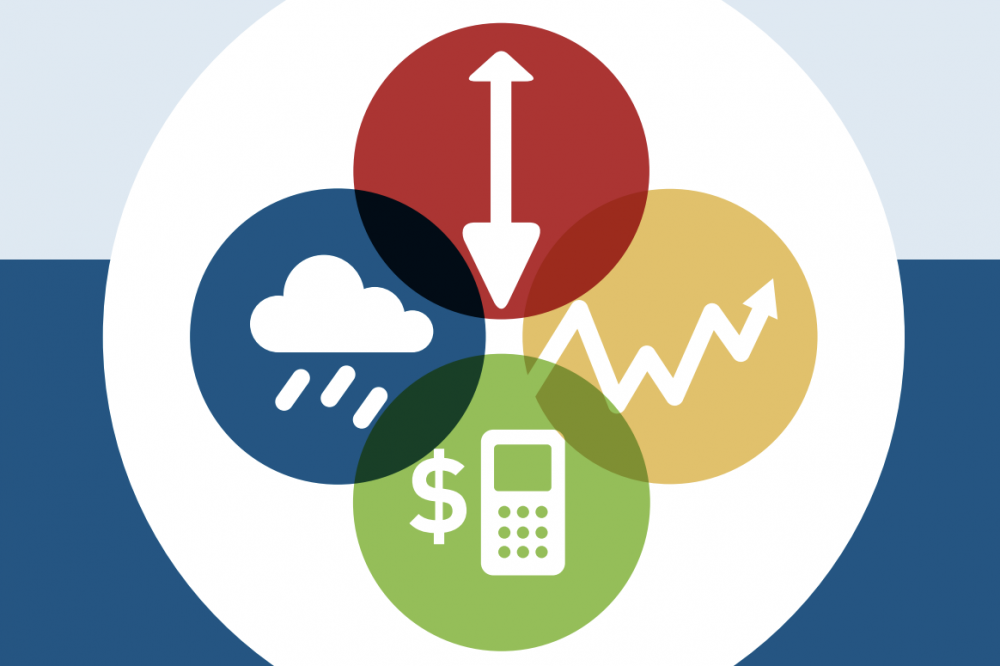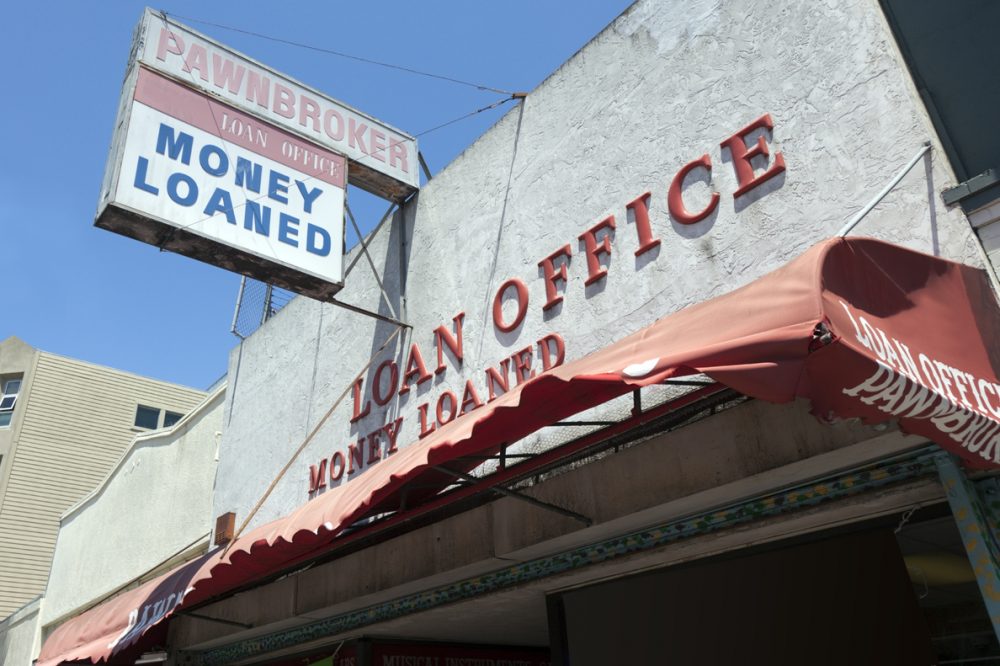#FinHealthMatters: Femme Frugality
By Femme Frugality A lot of times when we write about money, we pretend that our income will look like this: But just as the aging process doesn’t always go the way we want it to, studies show that for most American families, income doesn’t go up in a straight line at a 40 degree…
#FinHealthMatters Day: Personal stories about financial health in America
By Theresa Schmall, Financial Health Network June 27, 2017 was the second annual #FinHealthMatters Day. On this day more than 900 individuals created nearly 10 million Twitter impressions explaining why financial health matters. This message is particularly important because 57% of Americans — approximately 138 million adults — are struggling financially. At Financial Health Network, we see the struggle…
Secured Credit Cards: Rural, Underserved Communities
Americans in rural communities are losing access to locally available, affordable financial services and products.
Secured Credit Cards: Establishing a Path for New Immigrants
Secured credit cards can be an effective way to build U.S. credit history and thereby access affordable credit products and fully benefit from inclusion in the U.S. financial system.
FinHealth matters, and a private look into a financial diary shows us why
By Rachel Schneider, Financial Health Network When Jonathan Morduch and I started working with the families associated with the US Financial Diaries research — featured in our recently released book, The Financial Diaries — we thought it might be hard to get people to share the intimate details of their financial lives with us. After all, how many of…
Why Providers Should Know Their Customers’ Unique Financial Stories
An EMERGE Pre-Conference Interview with Speaker Lynnette Khalfani-Cox By Elizabeth Vivirito, Financial Health Network Lynnette Khalfani-Cox We sat down with Lynnette Khalfani-Cox, New York Times best-selling author and CEO/Co-Founder of AskTheMoneyCoach.com, for a candid conversation about why providers should know their customers’ unique financial stories, what works to inspire consumers to act, and the importance…
Driving for Broke: The Underserved Insurance and Auto Loan Opportunity
In the United States, there are approximately 198 million insured vehicles on the road today. Among those, approximately 53 million vehicles are insured by low- to moderate-income (LMI) — often known as underserved — consumers.
2016 Financially Underserved Market Size Study
The Financial Health Network and Core Innovation Capital present this 6th annual market analysis to illustrate the size of the opportunity to address the needs of financially underserved consumers and identify significant trends driving marketplace evolution and growth.
The Financial Health Network Comment Letter on Payday, Vehicle Title, and Certain High-Cost Installment Loans
The Financial Health Network is submitting this letter in response to the request for comments on “Payday, Vehicle Title, and Certain High-Cost Installment Loans,” issued by the Consumer Financial Protection Bureau (CFPB) and published on July 22, 2016.
#FinHealthMatters: Principles Of Increase
By Aja McClahanan I’m a child of the 80s and came of age in the 90s. If you don’t know much about that time period, I’ll sum it up for you: the rise pop culture consumerism. Rappers, ball players and other larger-than-life personalities defined success for us in terms of the “bling.” The more diamond-encrusted…
#FinHealthMatters: Know Money
By Steven M. Hughes LET’S REWIND. I’m a freshman in college, hungry for food and new experiences as I’m walking across the library bridge. From one end to the other are tables filled with coupons for free pizza, subs and credit cards (one of these things are not like the others). Shortly after all the…
Member Summit 2016 Presentation
#FinHealthMatters: Six Figures Under
By Stephanie Jones Have you ever avoided going to the doctor about an ache or pain simply because you were afraid of what the diagnosis might be? That happens with finances too. In fact, that was totally me three years ago. While my husband was in law school, I knew our debt was mounting, but…
#FinHealthMatters: Broke Parents
By Bobbi Dempsey Growing up in severe poverty, smart financial skills aren’t something you learn. I say that from personal experience. Survival is the main goal, and you do anything necessary just to get your hands on enough food to make it through the day. You have a very negative view of — and relationship with — money, as…
#FinHealthMatters: His & Her Money
What does financial health mean to me? If only I were presented with that question eighteen years ago when I was a young man entering the United States Army, maybe I wouldn’t have made some of the mistakes I have made in the area of my finances.
Financial Solutions Lab Snapshot: Innovations in Helping Consumers Weather Financial Shocks
Over the last year, more than 100 million American households experienced a financial shock. This year the Financial Solutions Lab’s second $3 million challenge was seeking solutions that could help Americans to weather such shocks.
#FinHealthMatters: Saidia Financial Solutions
By Tai Stewart Ever since I can remember, my dad was always the financial manager in our household. He knew how to support 8 kids and a wife on less than $40,000, and we didn’t lack any basic necessities. As the eldest child, I was the recipient of most of the financial lessons since I…
#FinHealthMatters: Simple Disability Insurance
By Amanda K. Lettmann Disability comes quickly and very unexpectedly. One moment you are healthy, another moment you are having open heart surgery — at least that’s what happened to me. In the early 1990’s, I learned dearly the importance of having sound financial health. At the time I was 29, an avid runner, cyclist, and fitness…
#FinHealthMatters: Center for Financial Inclusion
By Jeffrey Riecke, Communications Specialist, CFI This morning I had the luxury of splitting an Uber with my girlfriend for our to-work transportation. Neither she nor I are affluent by United States standards, but I would say we’re relatively financially healthy. Most months, our expenses like rent, food, medical bills, and student loans are low…
#FinHealthMatters: Fresh Finance
By Eric Patrick, BlackMarketExchange Spring 2011. That’s when I graduated from Howard University’s pharmacy school. I felt like I hit the lotto. No more waiting on refund checks, which at the time felt like a million dollars. I was now going to be a licensed pharmacist with a paycheck that was sure to prevent me…
#FinHealthMatters: Debt Free Divas
By Toni Husbands, Debt Free Divas As a mother of two very young children, staying healthy is a priority because I want to remain active with them as we all grow older. Helping my children develop healthy lifestyle habits is important so hopefully one day they can pass that on to my grandchildren. I didn’t…
#FinHealthMatters: CashMoneyLife
By Ryan Guida, CashMoneyLife We all have financial goals in our lives. Mine have changed through the years, but I can still remember the big ones. Paying off all consumer debt. Getting married. Buying a home. Becoming a father. These were all huge financial milestones. But perhaps the biggest financial leap of faith I ever…
That Moment the Consumer’s Voice Shines Through
In July our colleagues at Fifth Third Bank shared several examples of how Financial Health Network has affected that organization’s thinking. “We printed out the image of small-dollar credit consumers, taping it by our desks to remind us every day about the people we were doing our work for.” Thank you, Tom, Mark, and Darren,…
Learning Consumers’ Struggles By Walking in Their Shoes with USAID and U.S. Treasury Department
By Financial Health Network Consulting A Financial Inclusion Forum Goes Further Nothing makes the consumer experience resonate more than living it first-hand. The Financial Health Network understands this, which is why it created the Consumer Financial Experience (FinX) to offer an in-the-field opportunity that puts participants in consumers’ shoes and has them tackle the challenges…
#FinHealthMatters: Debt Roundup
By Grayson Bell, Debt Roundup Did you know 57% of Americans are struggling financially? Isn’t that a crazy number? What if I pull out percentages and go with about 138 million people. Yes that is MILLION! This information is according to Center for Financial Services Innovation’s Consumer Financial Health Study. While I hate to see…
#FinHealthMatters: True Tightwad
By Nick True, True Tightwad So, I have a confession to make. I ruined my honeymoon. This is hard to admit since most people don’t know this (not even my mom, who’s reading this for the first time). It’s hard because this story has the potential to paint me in an extremely negative light. But…
#FinHealthMatters: I Pick Up Pennies
By Abigail Perry, I Pick Up Pennies FinCon and Center for Financial Services Innovation partnered up for a contest to have bloggers explain what financial health means to them. Here’s my take on the subject. Most people think of financial health as a state of being. To me, it’s about a conscious journey toward stability….
#FinHealthMatters: Betsy Mikel
How a rejection letter and a plate of red velvet cupcakes led me to understanding how #FinHealthMatters. By Betsy Mikel Thank you for your interest in Northwestern University. After careful consideration of your application, I am sorry to inform you we are unable to offer you a place in the class of 2008.* The 18-year-old me…
Why Moments of Impact Matter
By Elizabeth Vivirito, Managing Director, Financial Health Network This month we’re introducing a series called “Moments of Impact.” At Financial Health Network we work hard to design our events, content, and experiences with impact at the center of our work. While we have seen notable strides from our members and in the marketplace, we recognize…
#FinHealthMatters: brokeGIRLrich
By Mel Bondar, brokeGIRLrich I am the world’s laziest runner. I kind of hate it. Sometimes it’s my legs that hate it. Sometimes it’s my lungs. Most of the time though, it’s my mind. My mind really hates running. My mind wants to be at home binge watching Pretty Little Liars and eating chocolate chip…
The first #FinHealthMatters Day: Deeply personal stories about financial health in America
In case you missed it, June 29 was the first-ever #FinHealthMatters Day. You might be wondering what that’s all about, maybe even why you should care. In a nutshell, it’s this: 57% of Americans — approximately 138 million adults — are struggling financially. If that doesn’t scare you, it should. The struggling majority aren’t who you think: While it’s…
Case Study: Learning Consumers’ Struggles By Walking in Their Shoes with USAID and U.S. Treasury Department
USAID and the U.S. Treasury Department hosted a FinX, an in-the-field opportunity that puts participants in consumers’ shoes and has them tackle the challenges they face head-on.
Case Study: Strengthening Ties with Communities: Nix Neighborhood Lending
Discover how Nix Neighborhood Lending has made a lasting impact on its customers in South Central Los Angeles by providing a variety of credit services to this vulnerable group.
Infographic: Lessons Learned in Successful Product Distribution
New research reveals just how much money financially underserved consumers spend on financial products and services. The latest data shows that in 2014, consumers spent $138 billion to simply manage their financial lives.
2014 Underserved Market Size: Financial Health Opportunity in Dollars and Cents
This report reveals that financially underserved American consumers spent $138 billion in fees and interest revenue in 2014, generated from a volume of $1.6 trillion in financial activity.
Infographic: Why Consumers Turn to Small-Dollar Credit
This infographic illustrates the types and uses of Small-Dollar Credit products.
The Financially At Risk, a Consumer Financial Health Segment
Over 29 million Americans comprise the “at risk” segment – most likely of all the segments to live paycheck to paycheck and run out of money before the end of the month.
The Financially Unengaged, a Consumer Financial Health Segment
A whopping sixteen percent of the country is unengaged with their financial situation. This segment earns its name from these consumers’ lack of awareness about their financial lives and their low level of engagement with traditional financial services.
The Financially Tenuous, a Consumer Financial Health Segment
More than half of Americans in the tenuous segment live paycheck to paycheck (53%) and struggle to keep up with bills and credit payments.
The Financially Striving, a Consumer Financial Health Segment
Strivers are generally able to make ends meet, but many of them are not satisfied with their current financial situation and are working to better their financial circumstances.
U.S. Financial Diaries: Emergency Savings
Standard financial literacy curricula recommends that households should have at least three months of income set aside in emergency savings.
Mateo And Lucia Household Profile: Thriving But Still Vulnerable In The U.S.
U.S. Financial Diaries Case study: Mateo Valencia, 31, and Lucia Benitez, 30, are an unmarried couple living in Queens with their four year-old son Pablo.
2013 Financially Underserved Market Size
This report reveals that American consumers spent $103 billion in fees and interest revenue in 2013, generated from a volume of $1.3 trillion in financial activity.
Design Matters – Learning from Consumers Experiences with Small-Dollar Loans
Reliable access to high-quality small-dollar credit (SDC) is vital to the financial success of millions of U.S consumers.
The Financial Health Network Comment Letter on FDIC Interagency Questions and Answers Regarding Community Reinvestment
The Financial Health Network is submitting this letter in response to the request for comment by the Federal Deposit Insurance Corporation, published on September 10, 2014.
U.S. Financial Diaries: An Invisible Finance Sector – How Households Use Financial Tools of Their Own Making
The U.S. Financial Diaries (USFD) is an ambitious research project first-of-its-kind undertaken in the U.S. The project is collecting detailed financial data from more than 200 low- and moderate-income households over the course of a year.
Investing in the American Dream
How financial institutions can build long-term relationships with immigrants before and after immigration reform.
Beyond Check-Cashing
Despite their gradual decline in use, checks remain prevalent, accounting for 33% of non-cash payments in the United States by face value.
Elena Navarro Household Profile: Getting Through A Tough Year
U.S. Financial Diaries Case study: Elena Navarro is a single, 27-year-old woman living outside of San Jose, CA.
Infographic: 2013 Financially Underserved Market Size
The underserved represent a vast opportunity for financial services providers to meet consumer demand for high-quality products that support financial health.


































